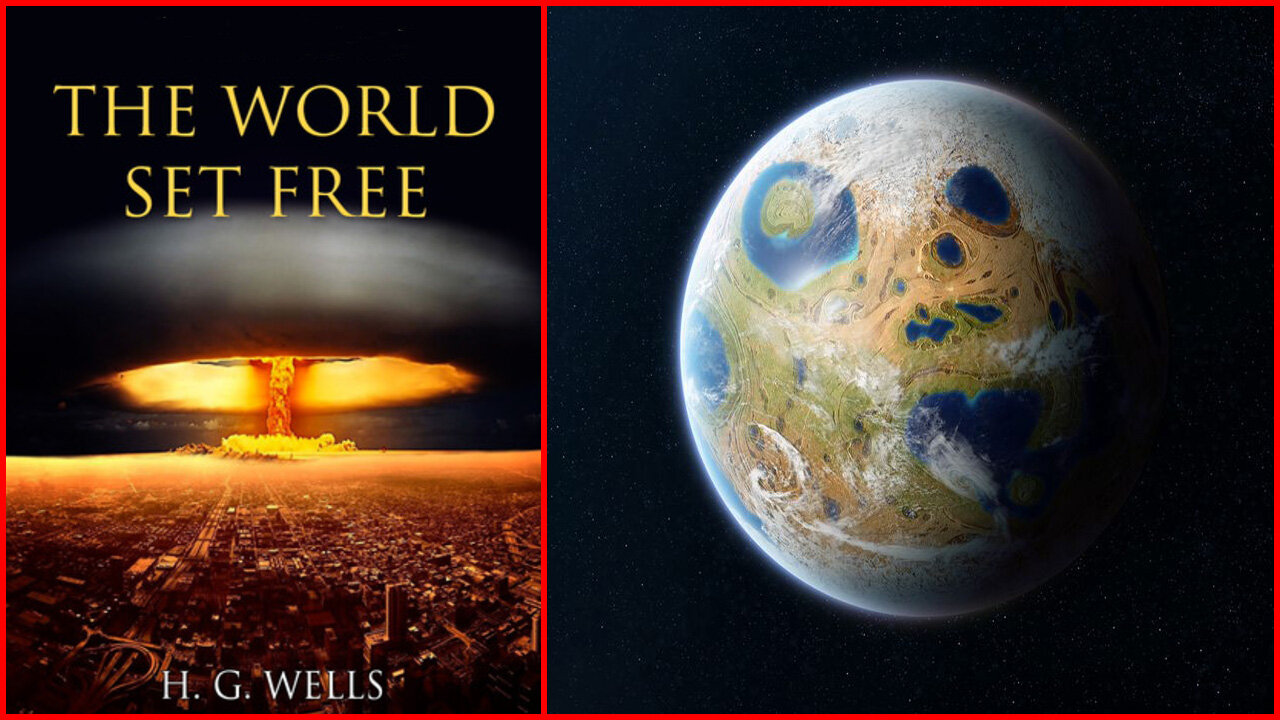Premium Only Content

'The World Set Free' (1913) by H G Wells
'The World Set Free' is a prophetic novel that imagines the development of atomic energy and its transformative effects on humanity. The story, written before nuclear physics was fully understood, envisions a future where atomic power is harnessed, leading to revolutionary changes in energy production and weaponry.
The novel opens with the discovery of "indefatigable" radioactive materials that release energy continuously. Wells depicts scientists who harness this new energy, initially with the goal of advancing society, but their efforts soon have destructive consequences as the technology is adapted for warfare. This leads to a devastating world conflict, as nations unleash powerful "atomic bombs" on one another, causing widespread devastation.
As civilization teeters on the edge, the survivors come together to seek a lasting peace. Wells explores the emergence of a world government, created to manage atomic power responsibly and prevent future wars. He envisions a new global society based on cooperation rather than conflict, where humanity redirects its focus toward progress, unity, and enlightenment.
Wells’s novel is notable for its foresight, particularly in its depiction of atomic bombs and the ethical dilemmas surrounding powerful technologies. Ultimately, The World Set Free reflects Wells’s belief in the potential of scientific progress to reshape human society, but also serves as a cautionary tale about the risks of unchecked technological advancement.
-
 3:11:06
3:11:06
Tate Speech by Andrew Tate
8 hours agoEMERGENCY MEETING EPISODE 100 - TATE FOR PRIME MINISTER
139K173 -
 18:52
18:52
VSiNLive
18 days agoFrom Las Vegas Dealer to Professional Gambler: How "Miss Brown" Won MILLIONS While Card Counting
20.2K2 -
 35:03
35:03
Stephen Gardner
2 hours ago🔥JUST NOW: Trump JUST SHOCKED Congress with new DEMAND!!
26.4K25 -
 LIVE
LIVE
checkmate7_7
3 hours ago $0.32 earnedStarting over. | !GUILDED
114 watching -
 LIVE
LIVE
Film Threat
7 hours agoVERSUS: BEST & WORST OF 2024! SQUID GAME SEASON 2! JANUARY SUCKS! | Film Threat Versus
118 watching -
 18:14
18:14
Neil McCoy-Ward
10 hours agoThis Is Absolutely Outrageous!!! (The UK Gov Have Betrayed Their Citizens...)
5.11K10 -
 1:56:15
1:56:15
The Officer Tatum
4 hours agoLIVE: Trudeau Resigns, Interview w Former DNC Fundraiser Lindy Li + MORE | Officer Tatum Show EP 35
21.3K12 -
 1:51:31
1:51:31
The Quartering
5 hours agoTrump HUMILIATED Trudeau Into QUITTING, Cybertruck Bomber Story Gets Weird, X Censorship & More
105K31 -
 1:43:39
1:43:39
Tucker Carlson
4 hours agoBilly Bush: The Infamous Trump Tape, Secrets of Corporate Media, & Megyn Kelly v. Harvey Weinstein
136K73 -
 2:08:29
2:08:29
Nerdrotic
6 hours ago $5.86 earnedHappy January 6th | FNT Square Up - Nerdrotic Nooner 455
78.3K12